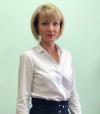References
- Temnyatkina O. V, Tokmeninova D. V. Modern approaches to teacher performance assessment an overview of foreign publications. Voprosy obrazovaniya [Educational Studies]. 2018. No. 3. P. 180‒195. DOI: 10.17323/1814-9545-2018-3-180-195 (In Russ.)
- Gadusova Z., Haskova A., Predanocyova E. Teachers' professional competence and their evaluation. Education and Self-Development. 2019. Vol. 14. No. 3. P. 17‒24. DOI: doi.org/10.26907/esd14.3.02
- Gadušova Z. Haskova A., Szarszoi D. Teachers` competences evaluation: Case study. Science for Education Today. 2020. Vol. 10. No. 3. P. 164‒177. DOI: doi.org/10.15293/2658-6762.2003.09
- Haskova A., Lukacova D., Noga H. Teacher self-assessment as a part of quality management. Science for Education Today. 2019. Vol. 9. No. 2. P. 156‒169. DOI: doi.org/10.15293/2658-6762.1902.11
- Martínez J. F., Schweig J., Goldschmidt P. Approaches for combining multiple measures of teacher performance. Reliability, validity, and implications for evaluation policy [Electronic resource]. Educational Evaluation and Policy Analysis. 2016. Vol. 3. Is. 4. P. 738‒756. Electron dan. URL: https://journals.sagepub.com/doi/10.3102/0162373716666166 (date of acсess 10.02.23).
- Huber S. G., Skedsmo G. Teacher evaluation-accountability and improving teaching practices. Educational Assessment, Evaluation and Accountability. 2016. Vol. 28. Is. 2. P. 105‒109. DOI: https://doi.org/10.1007/s11092-016-9241-1
- Slowik J., Peskova M., Shatunova O. V., Bartus E. V. The competences of young teachers in education of pupils with special educational needs. Obrazovanie I nayka [The Education and science journal]. Vol. 22. No. 10. P. 139‒160. DOI: 10.17853/1994-5639-2020-10-139-160 (In Russ.)
- Kleshcheva I. V., Snegurova V. I., Stefanova N. L. Results of the study on the subject-methodological competence of mathematics teachers. Biznes. Obrazovanie. Pravo [Business. Education. Right]. 2022. No. 1 (58). P. 265‒271. DOI: 10.25683/VOLBI.2022.58.114 (In Russ.)
- Kupriyanovа T. V. Establishing the national system of teacher development: legal and social issues. Psiholodicheskaya nayka I obrazovanie [Psychological science and education]. 2017. Vol. 22. No. 4. P. 22‒26. DOI: 10.17759/pse.2017220404 (In Russ.)
- Pisareva S. A., Puchkov M. Y., Rivkina S. V., Tryapitsina A. P. Teachers’ professional competence: the model of level-based assessment. Science for Education Today. 2019. Vol. 9. No. 3. P. 151‒168. DOI: 10.15293/2658-6762.1903.09 (In Russ.)
- Pashkin S.B., Lisovskaya N. B., Korablina E. P., Sivak A. N., Turchin A. S. Factors of psychological readiness of pedagogical university graduates for professional activities. Perspektivy nayki I obrazovaniya [Perspectives of science and education]. 2020. No. 6 (48). P. 358‒373. DOI: 10.32744/pse.2020.6.28 (In Russ.)
- Kuzmenko M. V., Kazko E. S. Readiness of future primary teachers to professional activities: assessment of subject and methodological competencies. Nepreryvnoe obrazovanie: XXI vek [Lifelong Education: The 21st Century]. 2022. No. 2 (38). DOI: 10.15393/j5.art.2022.7629 (In Russ.)
- Belolutskaya A. K., Krishtofik I. S., Mkrtchyan V. A. Features of professional activity reflection of the olympiad «I am a professional» participants. Vysshee obrazovanie v Rossii [Higher Education in Russia]. 2022. Vol. 31. No. 1. P. 98‒119. DOI: 10.31992/0869-3617-2022-31-1-98-119 (In Russ.)
- Simonova G. I., Konysheva A. V., Kotryahov N. V. Peculiarities of reflexive position formation in students within educational process at the university by information-and-communication technologies. Perspektivy nayki I obrazovaniya [Perspectives of science and education]. 2018. No. 6 (36). P. 65‒73. DOI: 10.32744/pse.2018.6.7 (In Russ.)
- Margolis A. A., Safronova M. A., Panfilova A. S., Shishlyannikova L. M. Testing of assessment tools of future teachers’ professional competence. Psiholodicheskaya nayka I obrazovanie [Psychological science and education]. 2015. Vol. 20. No. 5. P. 77‒91. DOI: 10.17759/pse.2015200507 (In Russ.)
- Orekhova T. F., Neretina T. G., Kondrashova E. N. Formulation of scientific concepts as a component of the research competence of future teachers. Vysshee obrazovanie v Rossii [Higher Education in Russia]. 2019. Vol. 28. No. 6. P. 149‒157. DOI: 10.31992/0869-3617-2019-28-6-149-157 (In Russ.)
- Nagovitsyn R. S., Golubeva I. A. Forming future teachers' communicative competences through the student scientific society activities. Integratsiya obrazovaniya [Integration of Education]. 2019. Vol. 23. No. 1(94). P. 66‒84. DOI: 10.15507/1991-9468.094.023.201901.066-084 (In Russ.)
- Margolis A. A., Safronova M. A., Panfilova A. S., Shishlyannikova L. M. Outcomes of independent evaluation of general professional competencies in future teachers. Psiholodicheskaya nayka I obrazovanie [Psychological science and education]. 2018. Vol. 23. No. 1. P. 64‒81. DOI: 10.17759/pse.2018230106 (In Russ.)
- Mazilov V. A., Slepko Y. N. Development of the psychological system of pedagogical abilities of students ‒ future primary school teachers. Integratsiya obrazovaniya [Integration of Education]. 2021. Vol. 25. No. 3 (104). P. 463‒481. DOI: 10.15507/1991-9468.104.025.202103.463-481 (In Russ.)
- Budnikova S. P. Evaluation by graduates of pedagogical universities their readiness for professional pedagogical activity. Psiholodicheskaya nayka I obrazovanie [Psychological science and education]. 2018. Vol. 23. No. 5. P. 112‒123. DOI: 10.17759/pse.2018230511 (In Russ.)
- Smolyaninova O. G., Rostovtseva M. V., Yudina Yu. G. [et al.]. Project-Based Activity as a Mechanism of Reflection Developmentin Students of Psychology and Education Studies. Journal of Siberian Federal University. Humanities and Social Sciences. 2021. Vol. 14. No. 3. P. 385‒395. DOI: 10.17516/1997-1370-0730













